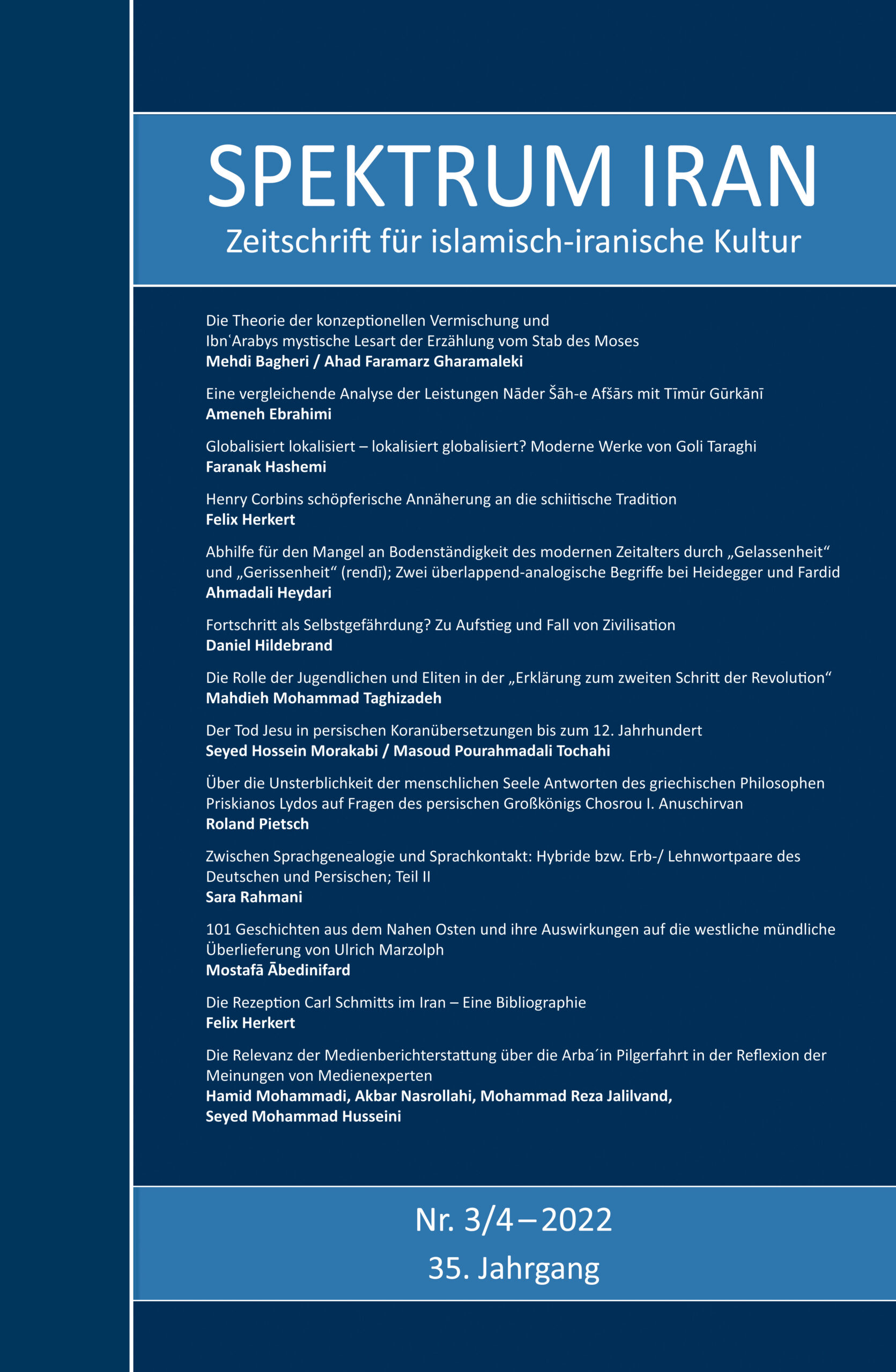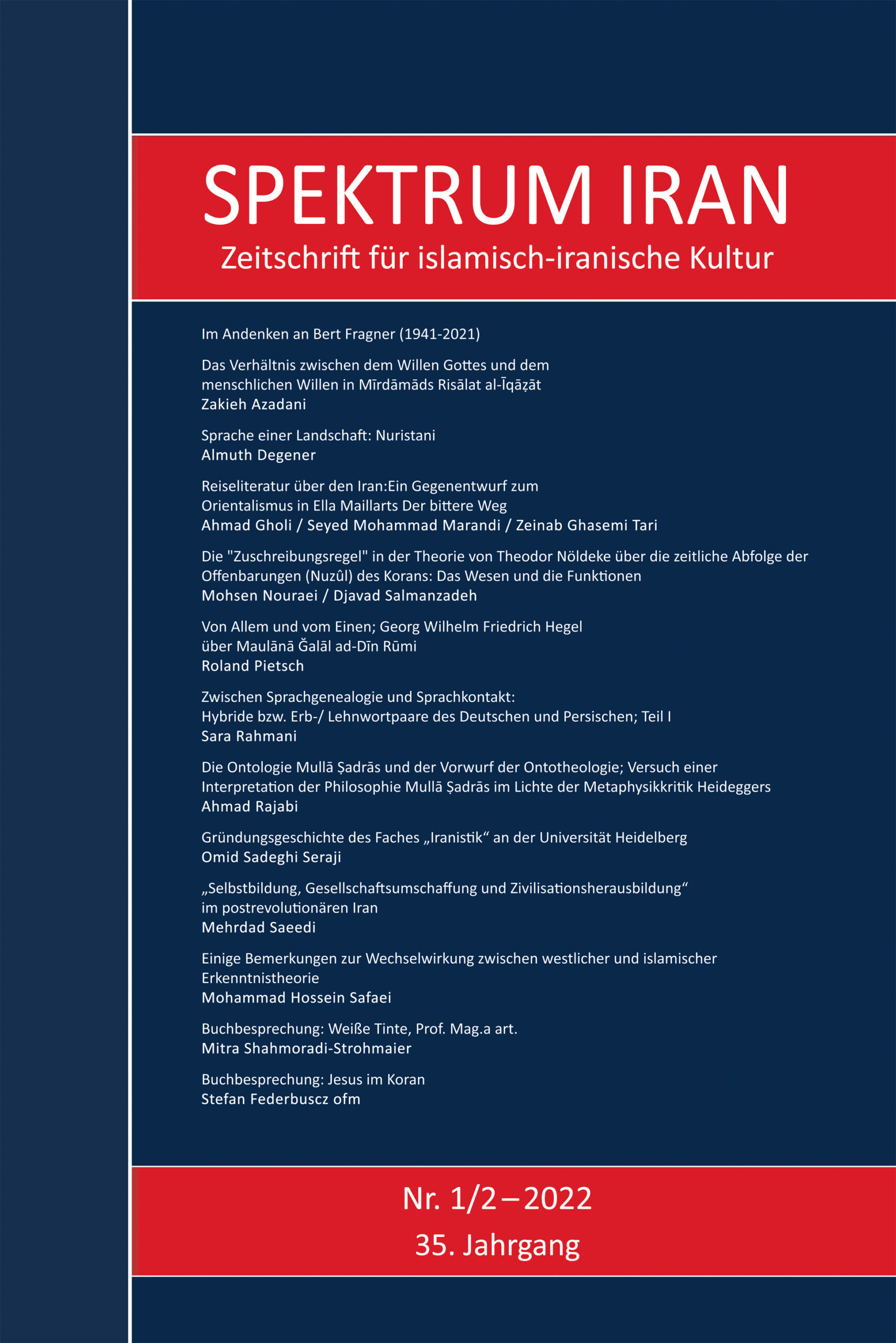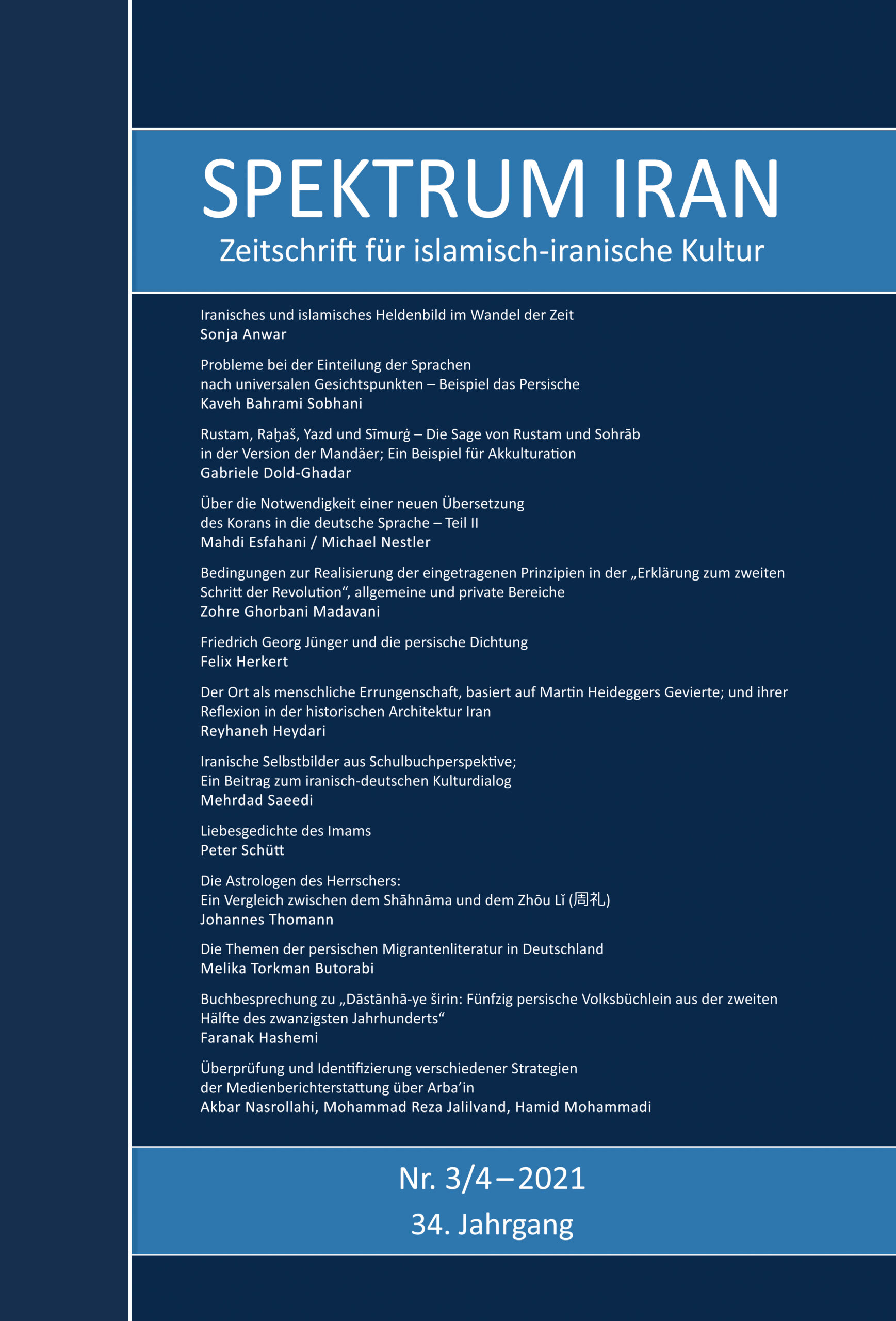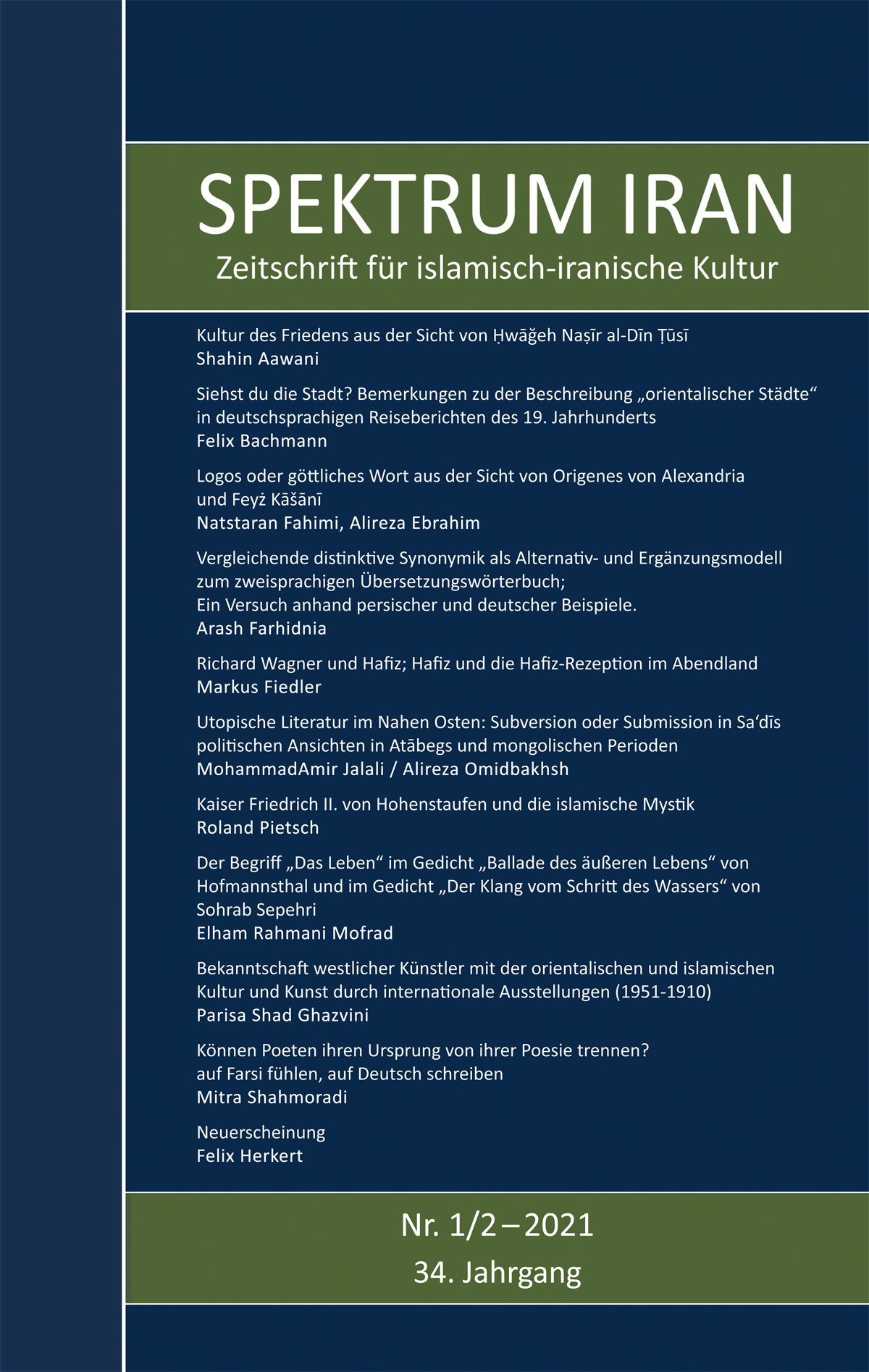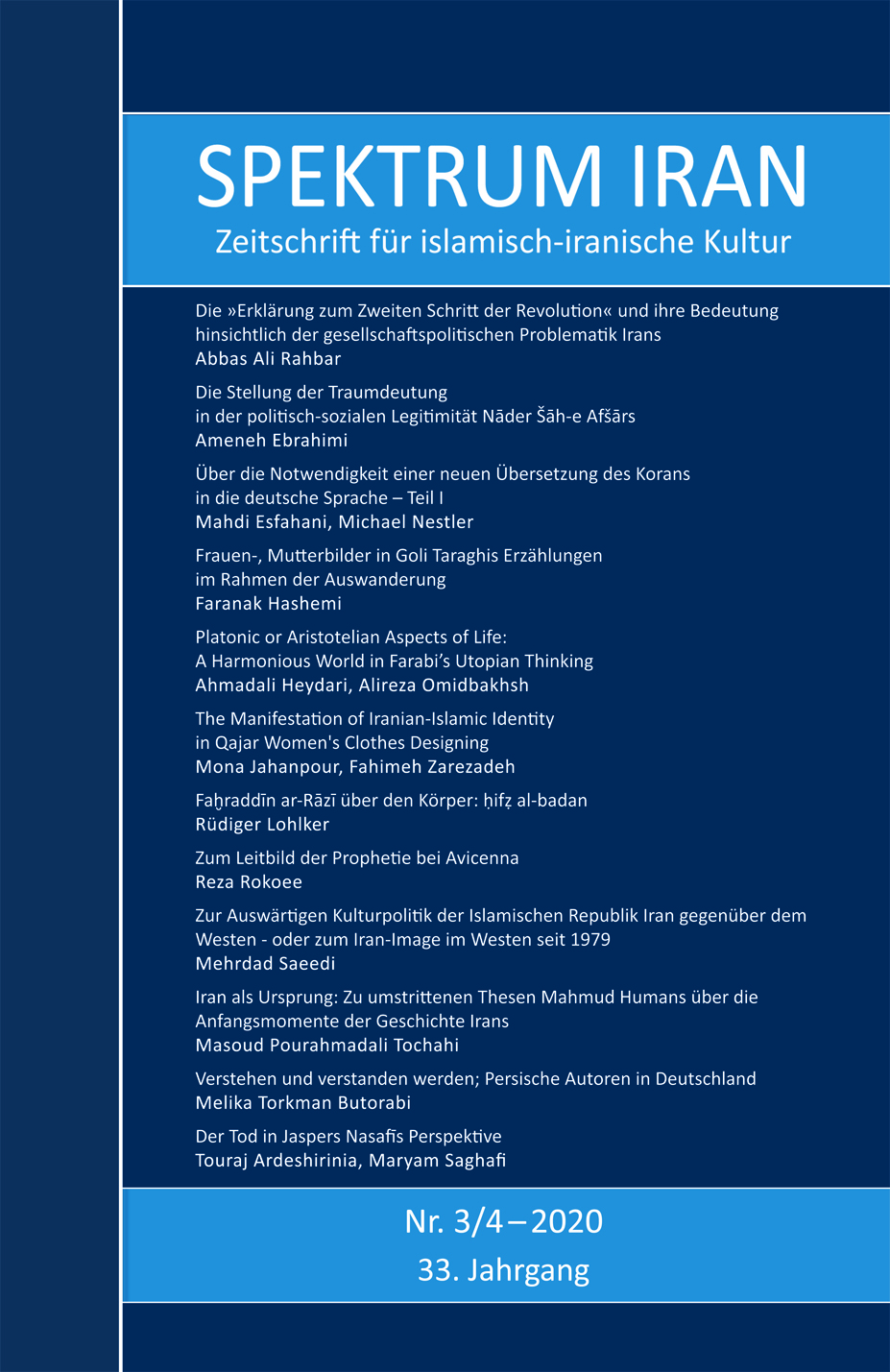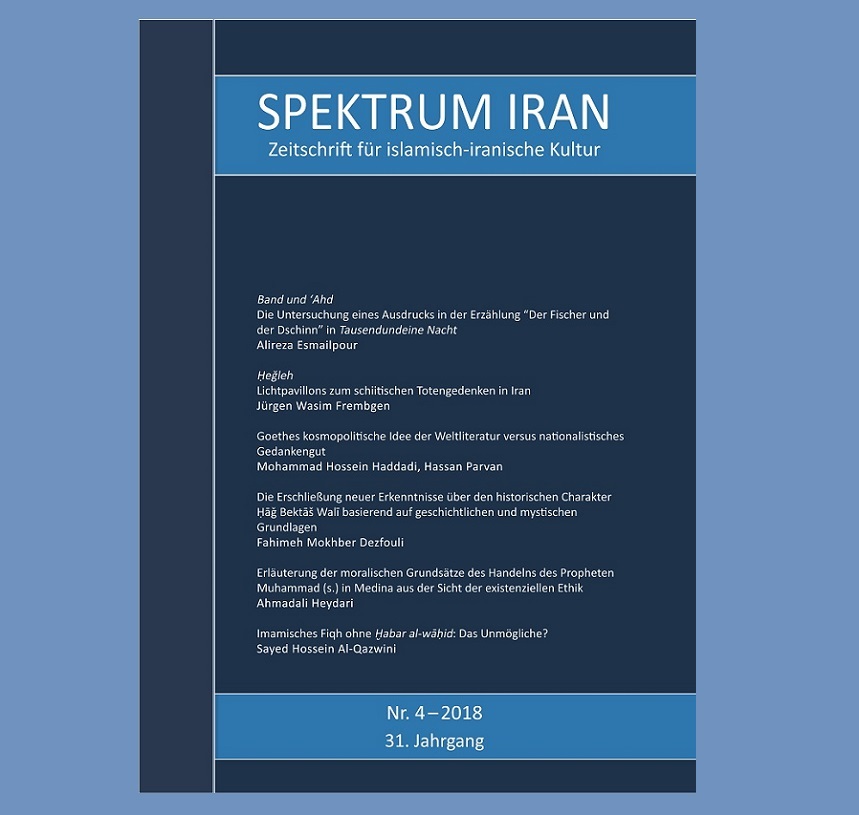Dialogue Between Islam and Christianity & It’s Impact on Global Peace
Dr. Abdolrahim Gavahi
In the words of Annemarie Schimmel , the great contemporary Islamologist and Orientalist, „Among all the religions which Christianity had to confront and deal with, Islam was both misunderstood and attacked most intensely. For more than a millennium Islam seemed to be a major-if not the major- threat for the people of Europe, and this feeling has contributed to the fact that Islam and those who confessed it, the Muslims, were regarded as arch enemies of Christianity and Western Civilization. While Qur’an, the sacred-book of Muslims, as we shall examine later on, amongst the „People of the Book “ has the most friendly view towards the Christians and says: „Thou wilt surely find the nearest of them in love to believers are those who say we are Christians, that is because some of them are priests and monks, and they wax not proud, and when they hear what has been sent down to the Messenger, thou sees their eyes overflow with tears because of the Truth they recognize…“ .
Also, the two great religious traditions of Islam and Christianity, with each of them having about twenty percent of world population as their followers and each establishing a great civilization in the East and the West respectively, have had a long history of contact since the birth of Islam, most of which has been characterized by constructive interaction and scientific, cultural, economic, philosophical, and especially in recent centuries, technical and industrial relations, which has been beneficial not only to their respective societies, but to the mankind as a whole.
It should also be mentioned that, according to the assessment of scholars of religion, both Islam and Christianity are so-called „international“ religions by nature, i.e. surpassing racial, and or geographical boundaries. In other works, they are not like, for example, Judaism that is a racially-based religion or, let’s say, Shintoism which is a nationally or geographically- based religion. Obviously, the presence of such a characteristic in Christianity and Islam, which extends them far beyond the territories of their origin, has necessitated some kind of exchange and interaction outside their geographical boundaries. Sometimes this interaction has had a friendly and cooperative tone and some other times, a hostile and negative coloring, which we will discuss in more details later on.
1. Islamic term for so-called Abrahamic religions, especially Jewish and Christian Traditions
I. Christianity in Quran
One of the main features of Islam and Qur‘ an is that belief in preceding „Prophets“ and „Books“ is considered a prerequisite to belief in the Prophet of Islam and the Holy Book of Qur’an. On the characteristics of „god-fearing people“ Qur’an says „they are those who believe in what has been sent down to thee and what has been sent down before thee“. Naturally, in such a context, Jesus the Christ and Gospels have a special place in Qur’an , to the extent that one full chapter of Qur’an is named after „Mary“ (surat al-Maryam) .
I have discussed „Christianity in Islam“ in much details, in a separate book titled „An Introduction to the History of Religions in Qur’an“. Here, it is worth mentioning that Qur’an begins the story of the life of Jesus the Christ by the life of Mary and states that she was amongst the „chosen“ people of God , and that she guarded her virginity and so she got pregnant by the Spirit of God! and delivered Jesus unnaturally. On Jesus the Christ, Qur’an says that he was a „sign“ of God and „prophet“ since childhood , and was confirmed by the Holy Spirit , and possessed many miracles , and was of those Nearest to God and attested the Book before him (i.e. the Torah) .
Anyhow, as we said before, the number of verses of Qur‘ an about Jesus the Christ is so many that even a brief reference to them in a short article is not possible.
Also, Qur’an considers Gospel, the sacred-book of Christians, containing guidance and light, and states that faith of the Disciples in God and in Jesus the Christ was because of God’s inspiration, and describes the persons of Disciples as God’s helpers and believers in Him Furthermore, Qur’an asserts that Jesus the Christ was not crucified by his Jewish enemies and that they were mistaken in this and only a likeness of Jesus was shown to them, and that God Almighty raised Jesus up unto Himself.
Finally, Qur’an states that all the People of the Book, i.e. Christians and Jews, will believe in Jesus the Christ before passing away and that on the Day of Judgment, Jesus will be a witness against them all, a very amazing passage of Qur’an indeed. Also, as it was said before, amongst the followers of Semite or Abrahamic religions, Qur’an considers the Christians to be the nearest to the Muslims.
II. Historical Background
Muslims trace back the history of Christians – Muslims contact to a Muslim trade caravan travelling through Syria and passing through a Christian monastery, whose abbot invited them because of Mohammad’s presence in that caravan, whom the abbot had recognized by the „signs“ of the new Prophet given in the Gospels. And also, later on, the emigration of a group of Muhammad’s companions to Abyssinia, taking refugee in the just Christian ruler of that territory. In the words of W. Montgomery Watt: „The Arabs had many opportunities of contact with Christians and Jews. The Byzantine Empire, whose power and higher civilization they greatly admired, was Christian, and so was Abyssinia. Even in the Persian Empire Christianity was strong…“.
This same point, i.e. contact between Arabs (Muslims) and Christians, has also been noticed by Annemarie Schimmel, she says: „Now and then in ancient Arabic poetry, Christian motifs appear: wandering monks, or the light that shines forth from a hermit cell. The country was situated in the sphere of influence of Byzanz and Persia, both trade partners of Meccans, and this facilitated contact with Jacobite, Melkite, and Nestorian Christians“.
PDF: Dialogue Between Islam and Christianity & It’s Im-pact on Global Peace



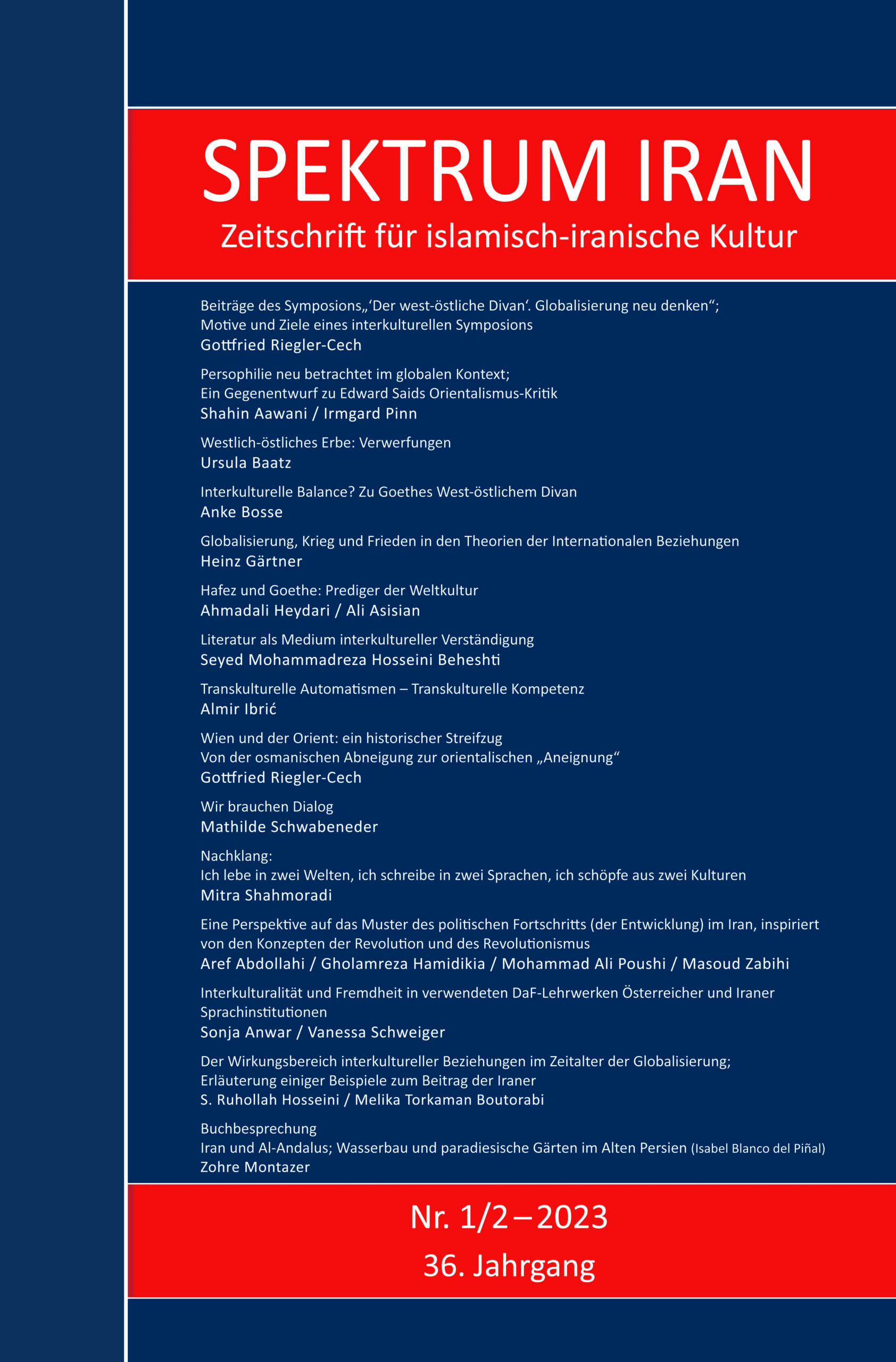 Die Zeitschrift Spektrum Iran mit den Heften Nr. 3 und Nr. 4 des Jahrganges 2023 ist erschienen und mit folgenden Beiträgen verfügbar:
Die Zeitschrift Spektrum Iran mit den Heften Nr. 3 und Nr. 4 des Jahrganges 2023 ist erschienen und mit folgenden Beiträgen verfügbar: 